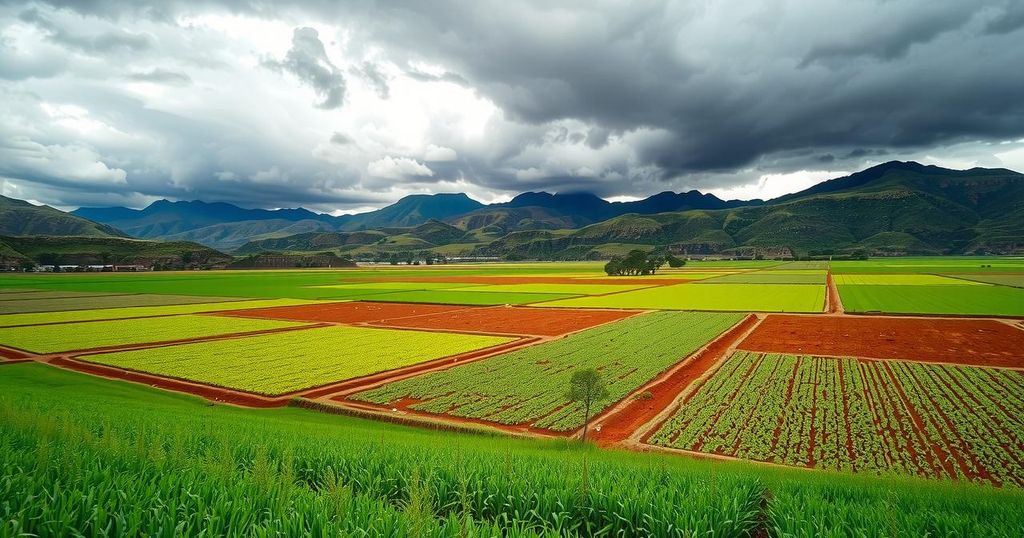Saul Luciano Lliuya, a Peruvian farmer, is suing RWE, claiming its emissions contributed to glacier melting and increased flood risk in his hometown. The case, now in the Higher Regional Court of Hamm, could set a precedent for climate litigation against corporations. Key points include Lliuya’s request for RWE to contribute to flood defense costs, the delays in proceedings, and scientific backing for his claims regarding climate change’s impact on glaciers.
In a groundbreaking case, a Peruvian farmer, Saul Luciano Lliuya, is suing German energy firm RWE for approximately 21,000 euros. He argues that RWE’s emissions have significantly contributed to the melting of Andean glaciers, leading to increased water levels in a lake above his hometown, which poses a flood risk. The legal proceedings commenced at the Higher Regional Court of Hamm, highlighting the case’s potential impact on corporate accountability for climate change.
Lliuya’s lawsuit, initiated in 2015 with the support of the environmental group Germanwatch, argues that RWE’s greenhouse gas emissions since the industrial revolution account for nearly 0.5% of global man-made emissions. He contends that RWE should therefore share in the costs of a flood defense project to mitigate rising water levels at Laguna Pacacocha, estimated at around $3.5 million.
Initially dismissed by a regional court in Essen, RWE contended that many carbon dioxide emitters exist worldwide, and thus the flood risk could not be attributed solely to them. After Lliuya appealed, the higher regional court in Hamm agreed to hear the case in 2017. However, the process faced delays, notably due to the COVID-19 pandemic, postponing expert evaluations until 2022.
The legal foundation of Lliuya’s case rests on Section 1004 of the Civil Law Code, which allows property owners to seek relief from disturbances affecting their property. The court is tasked with assessing the validity of the flood risk and determining RWE’s share in contributing to the issue based on expert testimony during the upcoming hearing.
This case has drawn significant attention as a potential landmark judgment that could redefine how corporations are held liable for climate impact. Law firm Freshfields Bruckhaus Deringer, representing RWE, acknowledged the symbolic importance of the case regardless of the low financial sum involved. Lliuya’s lawyer, Roda Verheyen, asserts that the ruling could establish a precedent for future climate litigation.
Supporting Lliuya’s claims, recent studies from the University of Oxford and the University of Washington confirm that human-induced climate change is accelerating glacier melting in the Peruvian Andes, raising flood risks. Climate scientist Friederike Otto stated, “As things are, there is ample proof that the science does apply in the Andes; we have absolutely no evidence to the contrary.”
RWE has dismissed Lliuya’s allegations, claiming that attributing global warming to a single emitter is unreasonable. The company is in the process of transitioning away from coal reliance, having significantly reduced its carbon emissions. As of 2023, RWE reported CO2 emissions of 60.6 million tons, down from 118 million in 2018, with plans to phase out lignite completely by 2030.
The case brought by Saul Lliuya against RWE represents a significant development in the legal landscape surrounding corporate responsibility for climate change. It underscores the intersection of environmental science and law, with the potential to influence future litigation and hold major corporations accountable for their contributions to global warming. Lliuya’s assertions, supported by scientific evidence, as well as RWE’s response, highlight the complex dynamics at play in addressing climate-related risks and accountability.
Original Source: www.stabroeknews.com






